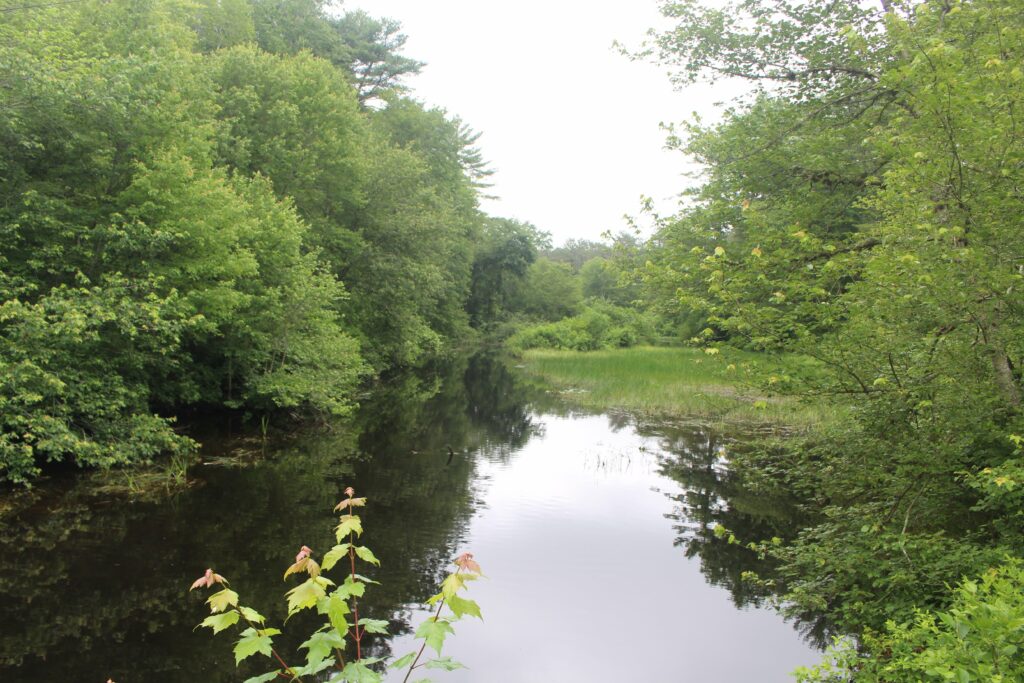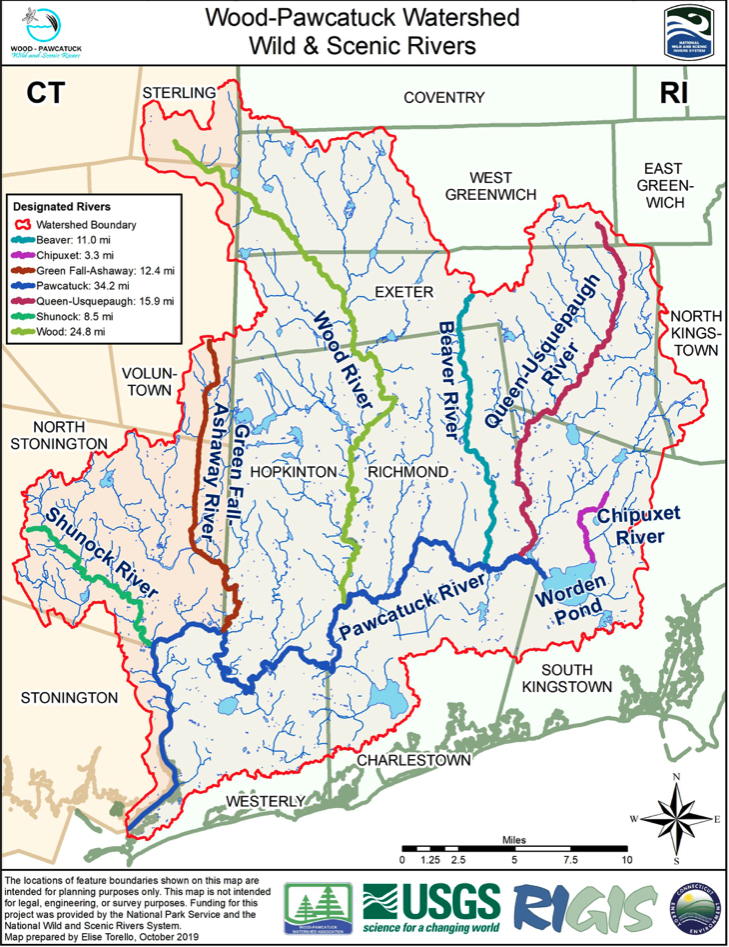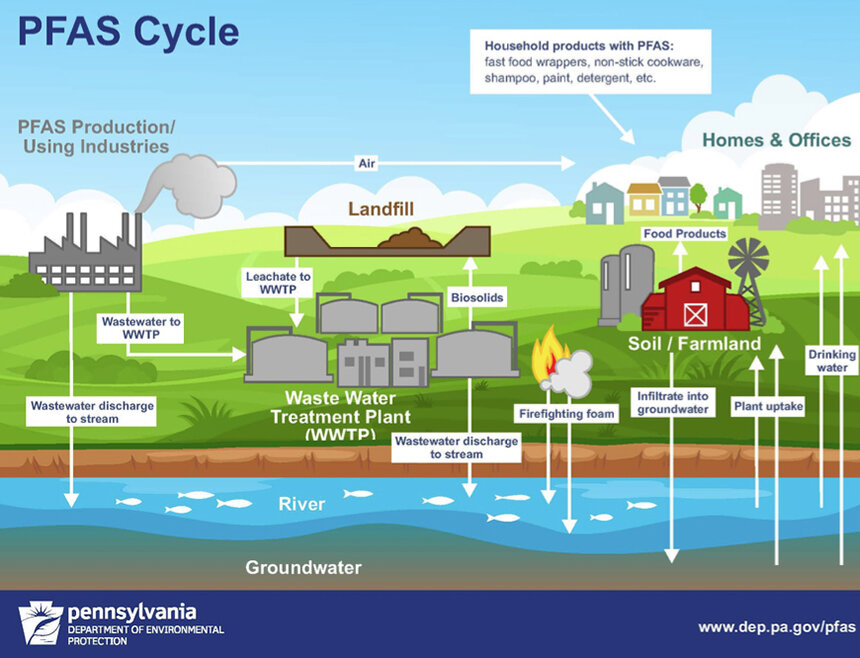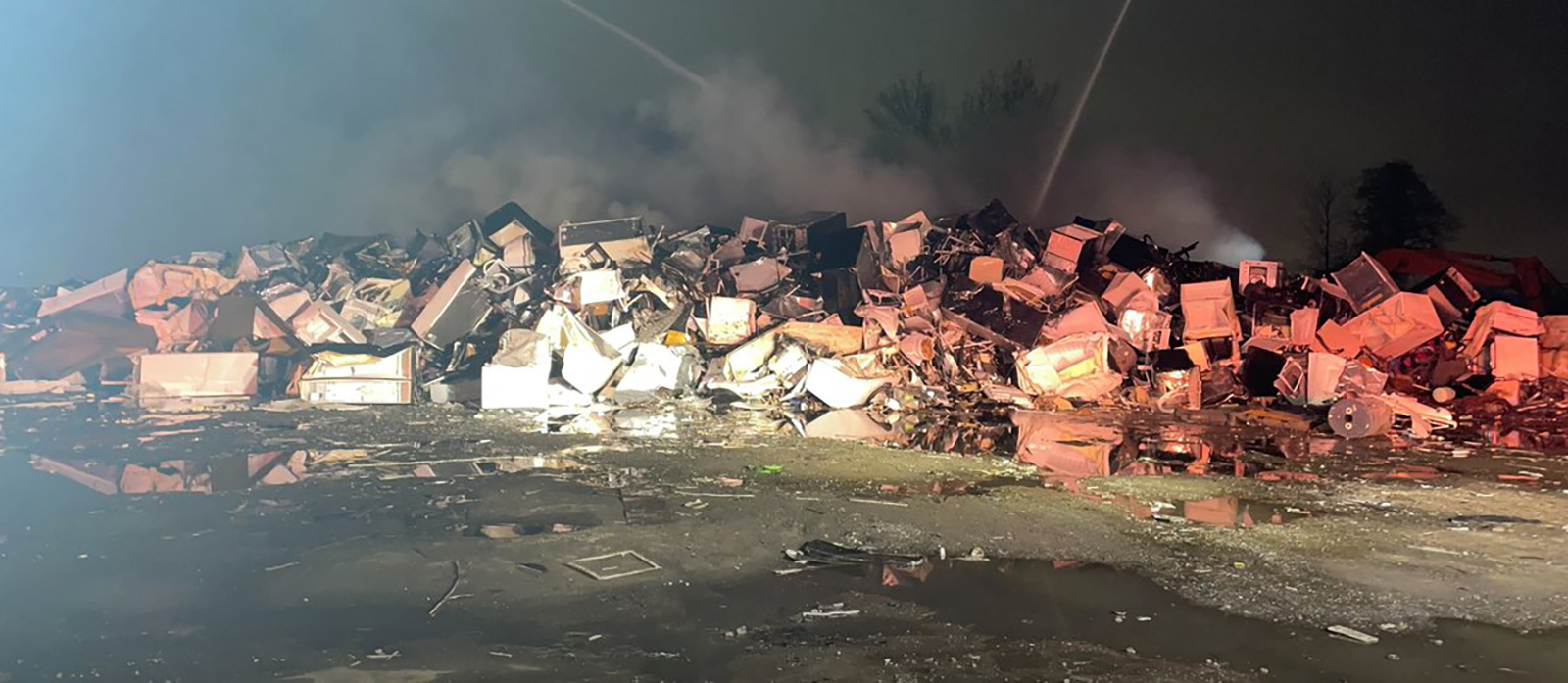First ‘7 Rivers Festival’ Celebrates Wood-Pawcatuck Watershed
June 20, 2022
Rhode Island is known for its miles and miles of Atlantic coastline, but that’s not the state’s only draw, or even its only aquatic attraction. The Ocean State is also home to miles of creeks, streams, and rivers, including the Wood-Pawcatuck watershed, which will be celebrated this weekend at the inaugural 7 Rivers Festival.
The Wood-Pawcatuck Wild and Scenic Rivers Stewardship Council, in collaboration with local communities and businesses, is hosting the celebration. The activity-filled weekend will highlight the recreational, scenic, and economic importance of the rivers.
From categorizing nighttime insects in Hopkinton, to land-based fly-fishing lesson in Westerly, to free kayaking in Pawcatuck and South Kingstown, the wide range of activities and locales for the event mirror the size and diversity of the watershed itself, said Wood-Pawcatuck Watershed Association Wild & Scenic Rivers coordinator Kassie Donnelly.
Donnelly grew up on the Wood River, where she said she discovered her passion for environmental issues. She said she hopes the festival will be the weekend’s “hot spot, or should I say cool spot?”
With the darkest night sky between Washington, D.C., and Boston, and dozens of miles of “wild” rivers, the watershed encompasses 300 square miles, and its waterways travel through 12 towns, crossing the Rhode Island border in the south into Connecticut.

Congress bestowed the special Wild & Scenic designation, only given to 1% of the nation’s rivers, on the watershed in 2019. The designation doesn’t put the land and waterways in federal control but allows communities around the watershed to devise a stewardship plan to conserve it.
Before the designation, the watershed was already central to life in the western part of the state, but the rivers’ uses have shifted over time, something local stakeholders hope to highlight.
In Westerly, which will host several 7 Rivers Festival events this weekend, businesses have become more Pawcatuck River-facing, according to Southern Rhode Island Conservation District manager Gina Fuller.
During the turn of the 20th century, the rivers had often been a “dumping ground” for waste rather than attractions, Fuller said. But over time, and as a testament to the work of the Wood-Pawcatuck Watershed Association, Save The Bay, and other organizations, Fuller said the river has become much cleaner.
The attitude used to be, “‘The river is something we don’t look at and that we don’t enjoy,’” she said. “What we’re seeing with the economic revitalization of downtown Westerly is that many of these businesses want to embrace the river. They want their customers to be able to sit and overlook the river.”
Ben Drumm, owner of Kenyon Grist Mill in South Kingston, agreed that the watershed is important to his business and community.
Drumm grew up in and around the Queen-Usquepaugh River, where he said he learned how to fish and where his family has run the grist mill since 1972. Though the mill no longer runs on the river’s power, it is a central part of the mill’s property and history, he said.
Drumm said he’s seen the river ecosystem become healthier.
“We’ve seen a huge bloom of fish population, and we have blue herons now and bald eagles coming in the winter to fish through the ice and everything,” he said. “So, it’s definitely, definitely taken on a very wild, natural feel.”

Drumm said the grist mill has worked with the Wood-Pawcatuck Watershed Association for years, so he was happy to raise awareness about the river by participating in the festival. Kenyon Grist Mill will be offering free kayaking and tours of the 19th-century mill Sunday from 10 a.m. to 4 p.m.
“There’s definitely, you know, a lot of tourism, obviously, in Rhode Island, and a lot of it is centered around the coastline areas,” Drumm said. “However, a lot of people don’t realize that they’re driving over bridges with the Wood-Pawcatuck River Watershed underneath.”
“Tourism is already here,” Drumm added, “we like to facilitate positive enjoyment of it.”
The stewardship council’s vice chair Chip Heil wants the festival to set off a positive feedback loop. Heil, who lives in Hopkinton and represents the town on the stewardship council, explained that by bringing people to the watershed area and getting them engaged with the environment through all the weekend’s activities, visitors will hopefully come to respect the wildlife and ecosystems they interact with.
“By encouraging that appreciation,” Heil said, “people will be more receptive to conservation activities.”
Colleen Cronin is a Report for America corps member and writes about environmental issues in rural Rhode Island for ecoRI News.




Awesome accomplishment getting designation and organizing the event. Thanks to all the partners for working with the council on this.